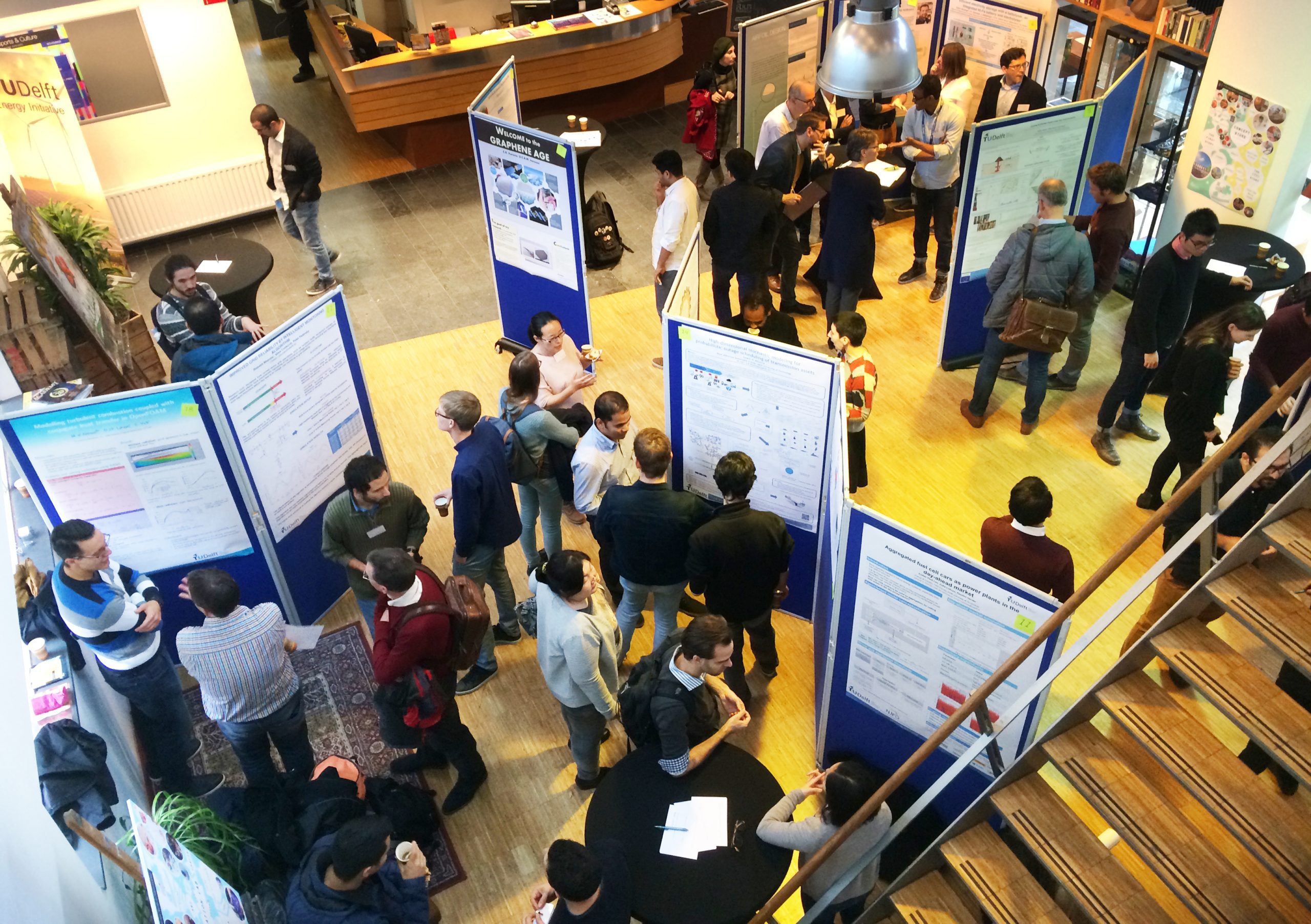Twenty-eight PhD candidates had two minutes for their pitches and one minute for questions. The jury toured the dance hall of the Sport & Culture building in just two hours. Except for Industrial Design and Engineering, nearly all the faculties were represented at the PhD Energy Event last Thursday.
Designs for smart grids, integrated energy systems for buildings, energy storage and new wind turbines were just some of the topics. The most daring project perhaps was by Baptiste Lepillier (Civil Engineering and Goesciences) who presented a proposal to obtain sustainable heat from volcanoes.
The motivational lecture was delivered by Dr Dolf Gielen, Director of the Germany-based International Renewable Energy Agency (IRENA). His message to the PhD candidates was to focus even more on sustainable energy. Asked what he thought of the new Dutch cabinet’s intention to make CO2 capture and storage a cornerstone of the climate policy, he just said: “I wish them luck. The Netherlands is low on the list of European countries producing renewable energy. I hope they attain their 2020 goals, and they will need to realise the projected offshore wind projects to do so.”
Whereas government policy on renewable energy has been variable over the years, Dutch industry and start-ups have been relatively active and innovative, Gielen observed.
.jpg) Foto: Roy Borghouts / TU Delft
Foto: Roy Borghouts / TU DelftThe winners for the best presentation were Fahimeh Nafezarefi, 2nd prize for her presentation of ‘Photochromism oÍ rare-earth metal-oxy-hydrides’ and Gustavo j. Otero. He won the first prize for his pitch of ‘Aerodynamic design of efficient organic Rankine cycle turbines’
Heb je een vraag of opmerking over dit artikel?
j.w.wassink@tudelft.nl


Comments are closed.